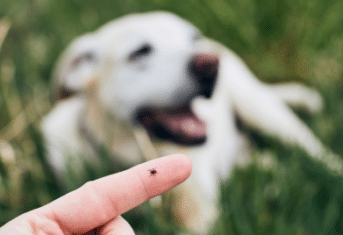Estate Planning: Providing for Your Pet’s Future

Estate Planning: Providing for Your Pet’s Future
I saw a new patient last week; an older cat with many serious problems, including cancer. After we finished agreeing on a plan for her cat, the owner told me this would be her last cat. When I asked why, she cited her age as the major factor. She thought if she got a kitten at her age, it might outlive her and she worried how she would provide for the cat after her death.
This conversation prompted me to think about the options available for pet owners to plan for their pet’s future. So I recently sat down with one of The Animal Medical Center’s long-term clients and pet legal expert Debra Hamilton.
Below is the information I gathered from our conversation to help my readers understand the options open to them and their pets.
Q: What types of legal instruments can be used by pet owners to provide care for them in the event the pet owner dies before their pets do?
A: There are two types of legal instruments that can be used to make provision for pets: your will and a pet trust.
Q: Can I include my pet in my will?
A; Yes, plans for your pet can be specified in your will, but if you are too ill to care for your pet or to make decisions about your pet,
provisions in your will do not help you provide for your pet until after your death. Moneys allocated to your pet in your will may not be available until after the will is probated. The lack of funds prior to probate may pose a problem for your pet’s new caretaker.
Q: What is a pet trust? Isn’t that what Trouble Helmsley had?
A: Trouble Helmsley did have a pet trust; although most pets do not require the $12 million dollars bequeathed to Trouble for his ongoing care. A pet trust is separate from and more flexible than your will. It can be set up to be used if you are disabled, unemployed, or die. Money allocated for pet care in a will can only be used if you die and many pets may need a care plan implemented before your death. If there is residual in the pet trust after your pet’s death, you can specify the recipient of those funds be the caretaker or your favorite charity.
Q: My will is already written and I don’t want the legal hassle of setting up a pet trust, is there anything else I can do?
A: A pet protection agreement does not require a lawyer and one can be found on the internet. This document allows you to specify a guardian and a successor with individual agreements for those who will be providing care to your pet. The money set aside by a pet protection agreement can be taken by your creditors or more easily challenged by family members since no attorney is involved in setting up a pet protection agreement. Even so, this type of document is better than having no agreement at all.
Q: Why do I need a document specifying my wishes? My children say they will keep my cat if anything happens to me.
A: Most people assume their family members will take over the care of their pets. Although your kids may want to keep your cat or dog or snake, sometimes the situation is beyond their control. For example, they may have children of their own who are allergic to cats, their own pets may not be accepting of yours, they may live in a “no pets” building, or their spouse maybe really squeamish about snakes. Advanced planning helps to provide options for your pet.
Q: Are there any pets advanced planning is more important for than others?
A: All pet owners should have a written plan for all their pets, but because large parrots and horses have such long lifespans compared to other pets and also because caring for horses is so expensive, advanced planning is critical for these particular pets.
Many thanks to Debra Hamilton for generously sharing her knowledge and for suggesting Petriarch, by Rachel Hirschfeld as a resource for readers of Fur the Love of Pets.
































